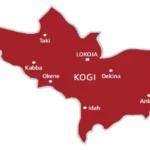The Speaker of the House of Representatives, Hon. Tajudeen Abbas, last month, announced the appointment of 33 legislative and media aides, in addition to the two he had already appointed.
The aides include special advisers, special assistants, chief press secretary, chief of staff and deputy chief of staff.
The appointment, according to the speaker, was to ensure the effective delivery of his legislative agenda for the 10th House of Representatives.
On his part, Senate President Godswill Akpabio has so far announced the appointment of two aides, chief of staff and deputy, Barrister Sylvester Okonkwo and Saviour Enyiekere, respectively.
- ISWAP bans farmers, fishermen from Borno LG amid NAF airstrikes
- Gov orders arrest of Ekiti APC chairman’s kidnappers
The two presiding officers have the latitude of appointing as many aides as they need to run offices provided it is within the budgets of their offices.
The other 107 senators and 358 members of the House of Representatives are also entitled to at least five legislative aides to man their offices for the next four years.
The public announcement of Speaker Abbas’ appointments has drawn reactions from public and other stakeholders, who raised concerns over the retinue of legislative aides engaged by the National Assembly’s presiding officers in each session.
There are also concerns over the justification for the appointments of such a large retinue of aides, some of whom, the critics alleged, may end up not adding any value to the system.
Previous presiding officers such as former Senate Presidents Bukola Saraki and Ahmad Lawan as well as former Speakers Yakubu Dogora and Femi Gbajabiamila appointed as many as over 100 aides but such appointments were not made public, thus, did not catch the attention of the public.
What they did most of the time was to announce key appointees such as their chief of staff and deputy; special adviser on media and publicity as well as chief press secretary, while other appointments are not made public.
Daily Trust reports that with the previous antecedents of past presiding officers from both chambers of the National Assembly appointing as many as 400 aides cumulatively, besides those of other non-presiding officers who are entitled to five aides each, it implies that no fewer than 2,700 legislative aides may be engaged by the 469 members of the 10th National Assembly.
The aides usually engaged by the lawmakers are in three categories – special advisers, senior special assistants and special assistants – whose salaries range between N700,000 and over a million naira each.
Daily Trust had reported that the presiding officers in the 8th National Assembly hired over 400 aides.
Bukola Saraki, who led the 8th National Assembly as Senate president and Yakubu Dogara as Speaker of the House of Representatives, reportedly hired over 112 and about 170 aides respectively. Deputy Senate President Ike Ekweremadu hired 60 and Deputy Speaker, Yusuf Suleiman Lasun, 58.
It was gathered that about N23.7bn was paid as severance package to members of the 8th assembly and their legislative aides while N30 billion severance package was earmarked for members of the outgone 9th assembly and their legislative aides.
The severance pay was 300 per cent of their annual basic salary, according to the Remuneration Package for Political, Public and Judicial Office Holders, as designed by the Revenue Mobilisation Allocation and Fiscal Commission.
A staff at the National Assembly’s personnel unit, where legislative aides are documented, said there were no significant changes in the number of aides appointed by the presiding officers of the 9th National Assembly when compared to the previous administrations. The staff also said a similar trend is expected to be maintained in the current 10th National Assembly.
“There is a limit to the number they (presiding officers) can hire depending on what they agree with the management. The chief accounting officer, who is the Clerk to the National Assembly, will inform them not to exceed a particular number because of budgetary provisions,” he added.
Details of the National Assembly’s budget are shrouded in secrecy, so it is difficult to know what is appropriated to the offices of the presiding officers and whether the number of aides they hire is within or beyond their budgetary provisions.
Findings showed that some aides were appointed with no clear responsibilities, and were hardly seen at the National Assembly.
While some of the aides are essential to the running of the official itineraries of the presiding officers, others were appointed to reward political patronage.
Such aides were appointed to man their constituency offices and also serve as their eyes, ears and foot soldiers gauging their rising or decreasing popularity in their constituencies.
Others act as liaison persons between the lawmakers and political groups that play diverse roles during electioneering.
An aide to one of the presiding officers in the 9th assembly, who asked not to be named, told Daily Trust that his principal had appointed many aides at different levels which he said might not necessarily be disclosed.
“The first aides he appointed were the most important who hold portfolios. He appointed other aides. As you said, there are many, and most are working outside the National Assembly,” he said.
Another aide said even some of those with responsibilities were not punctual because of a lack of office from which to operate.
“Some don’t have office space to operate from, so you see them hanging around, and at other times absent,” he said.
Our source said there are instances where some lawmakers get people appointed by the presiding officers but not necessarily to work for them.
“Such people may be appointed by the presiding officers but work for other lawmakers. This is like finding a means to reward political patronage when the lawmakers have exhausted the number of aides they are entitled to,” he said.
The practice of appointing a large number of aides by politicians is not limited to the National Assembly presiding officers. State governors are said to be the worst culprits.
Former Rivers State governor, Nyesom Wike, came under heavy criticism when he raised the number of special assistants on Political Unit Affairs to 200,000 towards the end of his second term in office.
The number of appointees was said to far exceed the totality of teachers in all public schools in the state and that of civil servants.
It’s waste, diversion of taxpayers’ funds – CSOs
Meanwhile, some civil society organisations have described the recruitment of a large retinue of aides by presiding officers as a waste of scarce public resources.
The Executive Director of Civil Society Legislative Advocacy Centre (CISLAC), Auwal Musa Rafsanjani, said politicians have reduced the bar of governance to wastage of public funds.
“It is just to show you how our politicians have turned governance completely into a joke and wastage. Otherwise, I did not really see the value that this large number of aides adds to good governance.
“Wike employed thousands of aides, but in reality, what have they contributed to governance? And has that helped to reduce poverty and unemployment?
“The scheme has completely nothing to do with helping employment. It has nothing to do with dealing with poverty, but rather it was a deliberate way of siphoning taxpayers’ money.
“This employment in two years or let’s say four years is not a guarantee of overcoming poverty, because it is not a structured and productive way of engaging persons.
“I consider this massive recruitment of political aides as simply a non-productive venture that aids waste and diversion of taxpayers’ money because it is not structured in a way and manner that will deal with unemployment or poverty. We cannot be borrowing money to squander it,” he said.
The Executive Director, Resource Centre for Human Rights and Civic Education (CHRICED), Dr Ibrahim Zikirullahi, said it is clear that the current power holders are neither interested in, nor are they committed to cutting down the high cost of running their offices.
“The APC, a political party which is presiding over a country with the highest number of poorest people on planet earth, sees nothing wrong in the obscene bloating of the cost of running office. This is not acceptable.
“The citizens facing the hardships, who are constantly being told to sacrifice must ask questions and demand accountability,” Zikirullahi said.
Also, the Executive Director, Young People’s Initiative for Credible Leadership (YPICL), Comrade Abdulwahab Ekekhide, said government at all levels should begin to look inwards and see how the cost of governance can be reduced and stop the arbitrary appointments of retinue of political aides without well spelt out functions and responsibilities.
“The state of our dear nation, Nigeria, now requires that all avenues of unnecessary spending should be stopped so as to save money for social interventions for the people following the removal of fuel subsidy.
“It is unfortunate that the legislatures that are to act as checks and balances to the executive arm of government are themselves involved in frivolous appointments of aides that they do not need.
“We want to use this medium to call on the president of the Senate and the speaker of the House of Representatives to henceforth cut down the number of legislative aides to a sizeable number.
“We want to demand that our political leaders cut down their allowances too and reduce unnecessary spending on overheads,” Ekekhide said.
By Abdullateef Salau, Itodo D. Sule, Balarabe Alkassim & Abbas Jimoh

 Join Daily Trust WhatsApp Community For Quick Access To News and Happenings Around You.
Join Daily Trust WhatsApp Community For Quick Access To News and Happenings Around You.


